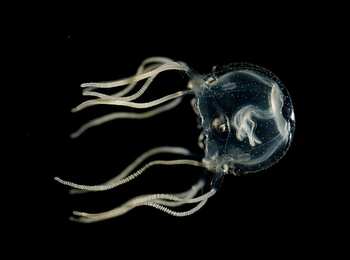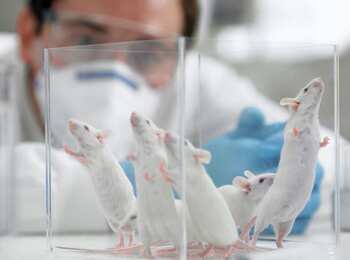All news on the topic: Clinical Research
1184
What the colour of your phlegm is really telling you and when to visit a GP
Coughing up phlegm is a tell-tale sign that you’re fighting an infection, but medical experts have warned that certain mucus colours could signal something more serious
1019
Being a hypochondriac will kill you faster, bombshell study concludes
Many of us worry about our health but for those who take it to extremes, a condition known as Hypochondriasis, it can come with a massively increased risk of death
624
Jellyfish are smarter than thought - and will change how we understand our brain
A new scientific consensus could arise regarding how we understand the human brain, in particular the processes of learning and remembering, and we have jellyfish to thank
632
Common snack lying in your kitchen cupboards can raise sex drive, study shows
There are many things people say are key to improving sex drive, but Iranian scientists have allegedly discovered a new one: folic acid, which is found in lots of our common foods
724
New hope for Alzheimer’s cure as scientists track how brain cells die
Scientists working at UCL in London and KU Leuven in Belgium believe they have made a major step forward in the fight to slow down - or stop - the progression of Alzheimer’s disease in the brain
1018
Dementia risk shoots up for people who sit down for 10 hours a day, study says
The groundbreaking research shows sitting down for long periods every day is a significant risk factor likely to cause dementia, regardless of whether you break them up with a walk
666
Men 'to have children one day' as scientists breed mice from male cells
Professor Katsuhiko Hayashi said technically his technique is possible but added "I'm not so sure whether at this stage it is safe or acceptable for society"
606
Meet the doctor who can 'predict death' and test will help families say goodbye
Dr Séamus Coyle and other researchers have revealed their studies on advanced lung cancer patients and believe they have discovered a way to predict the time of their death through their urine. He believes it will help patients and families much more.
22.02.2025, 13:43 • Investigation


22.02.2025, 11:50 • More


22.02.2025, 10:39 • Tech


22.02.2025, 09:55 • World


22.02.2025, 07:43 • Politics


22.02.2025, 06:57 • World


21.02.2025, 23:04 • World


21.02.2025, 22:30 • World


21.02.2025, 22:03 • Crime


21.02.2025, 21:58 • Crime


21.02.2025, 21:53 • World


21.02.2025, 21:48 • World


21.02.2025, 21:33 • World


21.02.2025, 21:30 • Tech


21.02.2025, 21:25 • Tech


21.02.2025, 20:45 • Politics


21.02.2025, 20:31 • Crime


21.02.2025, 20:28 • Politics


21.02.2025, 18:01 • News


21.02.2025, 17:55 • Crime


21.02.2025, 17:45 • Crime


21.02.2025, 15:21 • World


21.02.2025, 15:15 • Politics





















